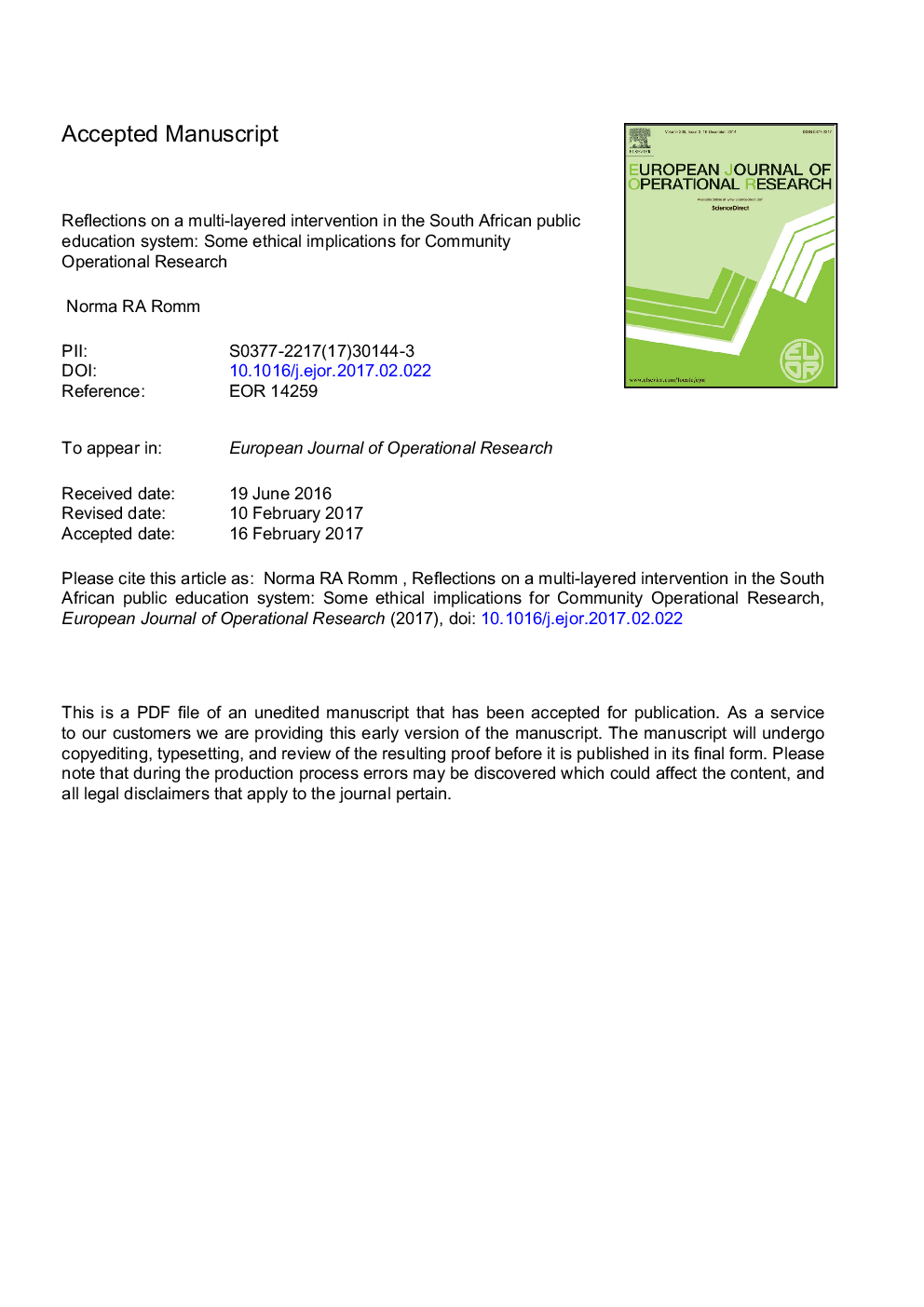ترجمه فارسی عنوان مقاله
بازتاب های مداخله چند لایه در نظام آموزشی عمومی آفریقای جنوبی: برخی از دلایل اخلاقی برای تحقیقات عملیاتی جامعه
عنوان انگلیسی
Reflections on a multi-layered intervention in the South African public education system: Some ethical implications for Community Operational Research
| کد مقاله | سال انتشار | تعداد صفحات مقاله انگلیسی |
|---|---|---|
| 116463 | 2018 | 40 صفحه PDF |
منبع

Publisher : Elsevier - Science Direct (الزویر - ساینس دایرکت)
Journal : European Journal of Operational Research, Volume 268, Issue 3, 1 August 2018, Pages 971-983
ترجمه کلمات کلیدی
تحقیقات عملیاتی جامعه تحصیلات، اخلاق، متدلوژی بومی، یا در کشورهای در حال توسعه،
کلمات کلیدی انگلیسی
Community Operational Research; Education; Ethics; Indigenous methodology; OR in developing countries;

